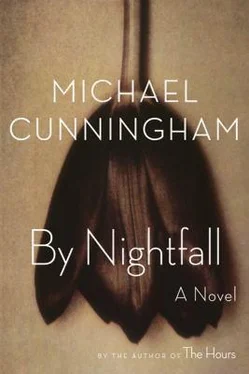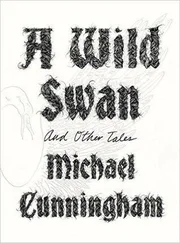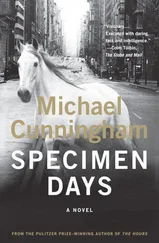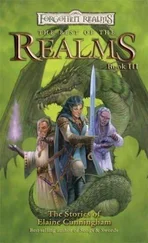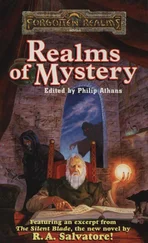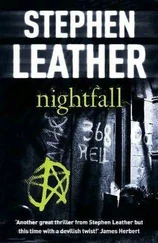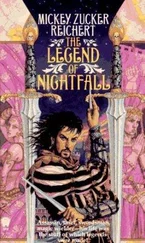Matthew is in a grave in Wisconsin. Bea is in all likelihood shaking a cocktail for some leering businessman.
Better take two of those blue pills tonight.
The train from Grand Central to Greenwich runs through a morass of exurbia that, let’s just say, one would want to conceal from a visiting extraterrestrial. Look over here, this is the Jardin du Luxembourg, and may I please present a little building we call the Blue Mosque. Pay no attention to that which encircles New York City: the fences topped with concertina-wire circles guarding factories that may or may not be out of business, the grim brick monoliths of housing projects, the scrappy little interludes of trash-strewn woods meant, it would seem, to demonstrate nature’s frailty in the face of human disregard. The eyes of Dr. T. J. Eckleburg would not be entirely out of place here.
Mizzy sits across from Peter, watching the gaunt urbanscape go by. The Magic Mountain sits open but unread on his lap. The Taylors have this gift for imperturbable presence. They are not nervous talkers. The Harrises, on the other hand, have always been constant talkers, not so much for the sake of entertainment or information but because if a silence caught and held for too long they might have fallen into a bottomless sullen discord, a frozen mutual quietude that could never be broken because there never had been and never would be a shared topic of sufficient reviving urgency (not at least one either of his parents could bear to broach), and so they needed to hydroplane forward together on an ever-replenished slick of remark and opinion, of ritualized disinclination ( You know, I’ve never trusted that man) and long-familiar enthusiasms (I know Chinese food is filthy, but I just don’t care). As a conversationalist, Peter’s mother was grand, in her way. She man aged to complain almost ceaselessly without ever seeming trivial or kvetchy. She was regal rather than crotchety, she had been sent to live in this world from a better one, and she saved herself from mere mean-spiritedness by offering resignation in place of bile—by implying, every hour of her life, that although she objected to almost everybody and everything she did so because she’d presided over some utopia, and so knew from experience how much better we all could do. She wanted more than anything to live under a benevolent dictator who was exactly like her without being her—if she actually ruled she would relinquish her right to object, and without her right to object who and what would she be?
Peter’s father entertained his wife. He pointed out the beauty and the pathos, grabbed her hand and nibbled like a monkey at her fingertips, scoured TV Guide for old movies he knew she’d like and made sure they had dinner out once a week at a “nice” restaurant even when the money was tight. By middle age they had become a mysterious couple, one of those what’s-he-doing-with- her couples (his beauty had deepened, hers had started to pale), but Peter knew they were simply aging into what had been a common-enough youthful courtship: she was a ravishing young girl who was not easily pleased, and he a handsome but scrawny boy who outadored his league of competitors.
Yes, reader, she married him.
It was not exactly a bad marriage, but it wasn’t a good one either. She was too much the prize, he too much the grateful supplicant.
And so, a never-ending, rather edgy conversation between them, an undercurrent of roiling sound that reminded them they were married, they had two sons, they were living a life, they had preparations to make and disasters to avert and a world to interpret, sign by sign, symbol by symbol, to each other, and that at this point the only fate worse than staying together would be trying, each of them, to live alone.
The Taylors of Richmond had no trouble with conversation, but its underlying purpose was different. Nothing was being perpetuated, nothing held at bay. This fundamental absence of nervousness seems to have affected all four of the children in that they were, each of them, many things but were, none of them, unsure. Mizzy’s got it, in spades—that Taylor way of unapologetically occupying space. It’s not so much about pride as it is simple, ordinary confidence, which is rendered extra ordinary only by its paucity among the general population. Look at him, big ponderous book in his lap, watching the scenery, not aloof but calm as a prince would be about his right to be wherever he is, and if someone is responsible for providing amusement and diversion, it is clearly not he.
Peter says, “Hard to believe we’re half an hour from Cheever country.”
Mizzy says, “This must be the train he took into New York.”
“I suppose. Are you a Cheever fan?”
“Mm.”
That would be yes, and apparently there’s not much more to say on the subject. Mizzy continues watching the devastation roll past, and Peter wonders if he’s not only absorbed by the view but demonstrating, for Peter’s benefit, that firm-jawed, Roman-nosed profile. He’s, what, three years older than Bea? It might as well be thirty.
Bea—lost girl, all wised-up enmity and bitten nails, wrapped in that big cheap Peruvian sweater that promotes survival in what must be your barely heated apartment—you and I both know that you hate me in part because you came to believe I’d made you believe you weren’t beautiful enough. We haven’t told anyone, certainly not each other, but we both know, don’t we? I did my best, but yes, I frowned over the yellow tights you loved when you were four and I went chilly over the white-and-gold bedroom set you wanted at seven and yes, it’s true, I disapproved of that Nouveau-ish silver necklace you bought for yourself at a crafts fair with your own money, your first independent purchase. I turned away from what you loved and although I never said anything—I tried not to be a monster, I truly did—we had that telepathy, and you always knew. And later, when your hips broadened and your face broke out, and I swear, I swear, I loved you no less for your adolescent gawkiness, but it was too late by then, wasn’t it, I had a reputation, and there was nothing I could do, no attention I could pay, no protestation of love that would convince. If I’d hated the piss-colored tights and the white-canopied princess bed how could I possibly love the girl herself, now that her hair frizzled and her body had abruptly, at puberty, activated a hitherto-slumbering strand of DNA (mine, Bea, it’s not your mother who’s descended from dairy maids and lumberjacks) that said with terribly, fleshly finality: solid, earthbound, big womanly breasts and child-bearing hips, well before your fourteenth birthday. Your parents are slim and attractive and you, by some trick of genetics, are not.
I make you feel ugly. It’s terrible for you to so much as speak to me on the phone.
“How are you liking Thomas Mann?” Peter asks Mizzy. As a Harris, he can’t bear too much silence. He seems to believe he’ll disappear.
“I love him. Well, ‘love’ may not quite be the word for Mann. I admire him.”
“Are you reading The Magic Mountain for the first time?”
“Yes and no. There’s all these books I read in about five hours in college, just to keep up. I’m going back and reading them for real now.”
Peter says, “I never would have graduated without coffee and speed.”
And now, finally, Mizzy turns from the window and looks at Peter. Mizzy and Peter both wonder, silently: Why would Peter say something like that? Is he redeclaring his allegiance to keeping Mizzy’s secret? Is he just trying to be cool?
Consider the rouged and wigged old man Peter saw the other night on Eighth Avenue. Consider Aschenbach himself, rouged and dyed, dead in a beach chaise as Tadzio wades in the shallows.
Читать дальше
Конец ознакомительного отрывка
Купить книгу
